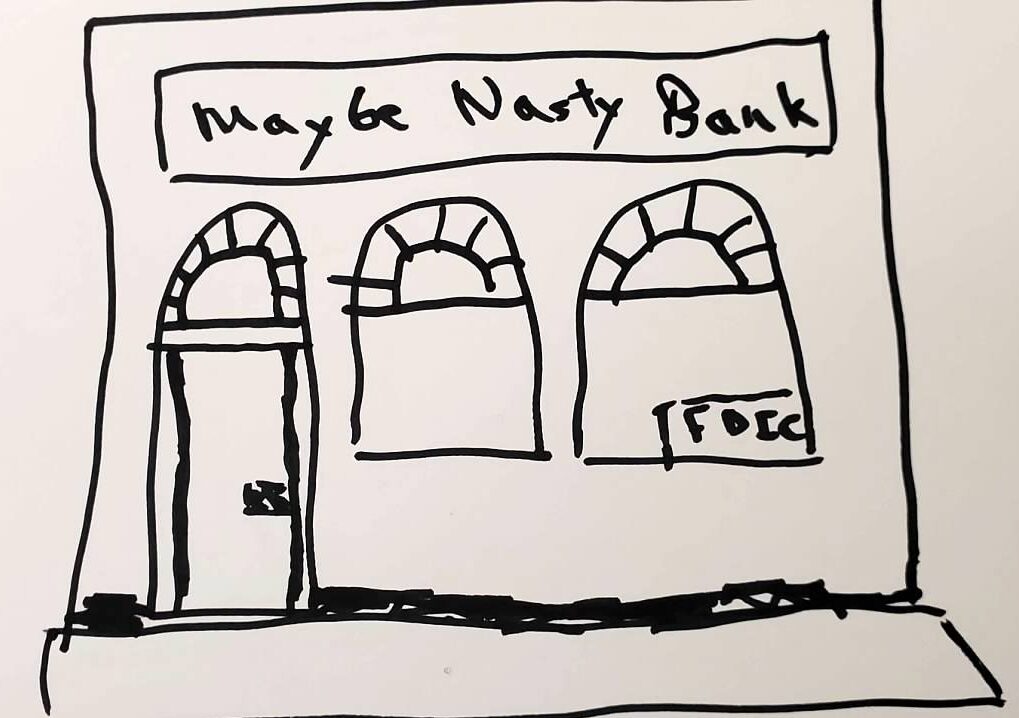 Filing for bankruptcy is often seen as an irreversible act that is only to be reserved for dire and desperate circumstances. For many, the very thought of filing brings to mind images of long shameful court battles and loss of wealth, reputation, and good credit standing.
Filing for bankruptcy is often seen as an irreversible act that is only to be reserved for dire and desperate circumstances. For many, the very thought of filing brings to mind images of long shameful court battles and loss of wealth, reputation, and good credit standing.
In truth this undesirable image is largely exaggerated and undeserved. What many people don’t realize is that filing for bankruptcy protection is often the first step in climbing out of the dark hole of debt and into the light of financial recovery.
Oh No! Not the “B” Word
Much of the mystery and taboo associated with the subject comes from a general lack of understanding about how bankruptcy works and what it means for the person who is filing. Here we hope to dispel some of the myths and misinformation that surrounds the subject by offering you a brief look into how bankruptcy works.
In the U.S., bankruptcy is constitutionally required to be placed under federal jurisdiction. Thus congress has enacted a number of statutes governing bankruptcy law and proceedings. Likewise, bankruptcy cases must be filed in United States Bankruptcy Court. Although cases are filed under federal jurisdiction, state laws greatly affect certain aspects of the process so it is important to understand that bankruptcy laws vary significantly from state to state.
Six Shades of Debt Relief
Bankruptcy is a blanket term that refers to a variety of legal arrangements that are available to a debtor seeking to liquidate, restructure or resolve his debt. Under Title 11 of U.S. Bankruptcy Code there are six distinct chapters or types of bankruptcy available to debtors depending on who they are and their financial situation.
All attorney David Kelly handles, however, are Chapter 7s and Chapter 13s, so discussion here will be limited to those two kinds of bankruptcy. We we will focus on the those two types of bankruptcy available to most individuals who have fallen on hard times and are seeking relief from creditors. We will take a look at each process and how each type of bankruptcy works.
How Does Chapter 7 Bankruptcy Work?
Chapter 7: Basic Liquidation
As the name suggests, Chapter 7 is sometimes decribed as the basic liquidation is the sale of the debtor’s non-exempt property and the distribution of the proceeds to creditors. One might think that Chapter 7 is generally the “harshest” form of bankruptcy as it can involve the mandatory sale of ones assets and generally does not involve structured reorganization of debt or a payment plan.
In most states bankruptcy proceedings are handled by a U.S. Trustee operating under the authority of the department of justice. In most Chapter 7 proceedings the process starts with the debtor filing a petition with the bankruptcy court that serves the area where the debtor lives, does business or houses their principal assets.
Along with the petition, the debtor must also submit a collection of documents that provide a detailed account of the debtor’s financial situation. This includes but is not limited to income, assets, living expenses and debt obligations.
Exempt Property:
Please know that most of the Chapter 7 clients at Kelly Law Office don’t have any assets liquidated at all. Most if not all of their assets can be claimed as exempt, so that they may keep them. For assets which are not exempt, the Trustee may allow the Debtor to buy the asset back by paying it’s value rather than surrendering the item itself.
Among the documents filed is a schedule of the debtor’s exempt property. This allows the debtor to retain all property that falls under federal and state protection from the liquidation process. It is important for a person filing for bankruptcy to consult with an attorney to determine which of his assets are exempt from the process.
Stop Collection:
 Filing for Chapter 7 stops collection actions against the debtor. As soon as the debtor files for bankruptcy the assigned clerk gives notice to creditors and collection agents listed in the filing to stop all lawsuits and collection efforts against him.
Filing for Chapter 7 stops collection actions against the debtor. As soon as the debtor files for bankruptcy the assigned clerk gives notice to creditors and collection agents listed in the filing to stop all lawsuits and collection efforts against him.
Conclusion:
While the process can involve all eligible assets being repossessed and sold in an effort to satisfy all or a portion of the debtor’s outstanding debts, it is unusual for our clients to lose any assets at all. If any assets are lost, it is usually relatively minimal. Once the case is completed, most remaining debt is discharged and, with certain exceptions such as student loans, the Debtor no longer owes anything to the creditors listed in the filing.
Side Effects:
Filing for Chapter 7 Bankruptcy has several effects on the debtor in addition to the obvious outcome of debt relief. The filing is recorded on the debtor’s credit history and also affects their ability to file bankruptcy again using the same or other chapter filings.
Chapter 13: Individual Debt Adjustment (Personal)
Chapter 13 Bankruptcy is somewhat similar to Chapter 11 in that the debtor is working to formally or legally restructure and adjust their debt burden in a way that allows them to move forward without the constant hardship of collection activity.
Stop Collection:
Filing for Chapter 13 stops most collection actions against the debtor. As with Chapter 7 filings, the stay or stop in collection activity may only be temporary if one of the creditors is able to get an order lifting the stay with regard to the particular debt owing to that creditor. As soon as the debtor files for bankruptcy the assigned clerk gives notice to creditors and collection agents listed in the filing to stop all lawsuits and collection efforts against him.
Save Your Home
One notable advantage of Chapter 13 filings is that the Debtor may be able to use the Chapter 13 payment plan as a tool to get mortgage payments caught up. This can obviously help avoid foreclosure of his home. With a Chapter 7 filing, foreclosure may be delayed, but the Debtor is on his or her own to get the payments brought up to date. While bringing payments up to date in Chapter 13, the Debtor must also start and continue making the regular payments on the mortgage which come due after the case is filed. Many succeed at this, but often it is very difficult..
Conclusion
A Chapter 13 Bankruptcy may be preferable to a Chapter 7 for the debtor who wishes to get caught up on a mortgage which is behind. Income taxes which are behind can also be brought up to date in a similar manner under Chapter 13. The payment plan is not based on the amount of the debt but upon what the Debtors can afford to pay. Debtors are required to devote their entire disposable income – what’s left over after reasonable living expenses – to their Chapter 13 Plan payments. If the Trustee is satisfied that a good faith effort is being made, the creditors have little choice but to accept the proposed plan. Little if any negotiation is involved in most cases.
Summary: How Bankruptcy Works
Bankruptcy is a legal procedure or device that follows standard guidelines. Here’s how it works:
- Debtor or Creditor brings to the attention of the court a debt or group of debts which the debtor has demonstrated he is unable to otherwise pay or resolve. In Chapters 7 and 13 all debts must be listed.
- Debtor (or sometimes the creditor) initiates bankruptcy filing which establishes the chapter under which said bankruptcy is to be carried out.
- Debtor is required to furnish a significant body of evidence detailing his financial standing and inability to pay the debts in question.
- Creditors are given the opportunity to review the evidence and have the opportunity to file certain objections if they believe that the Debtors do not qualify for the relief they are requesting.
- If all goes well, the Debtors will receive a Discharge after a certain period of time, which is essentially a court order which says all or a substantial part of the debts are gone.
This is a basic guide to how the most common forms of bankruptcy work. For more information we recommend you contact an attorney to determine your best course of action given your particular set of circumstances. Bankruptcy law varies greatly from state to state and circumstance to circumstance. We want to make sure you have the tools and knowledge to address your unique set of circumstances as best as possible. It is strongly suggested that you call attorney David Kelly for a no-cost screening over the phone (952-544-6367).















